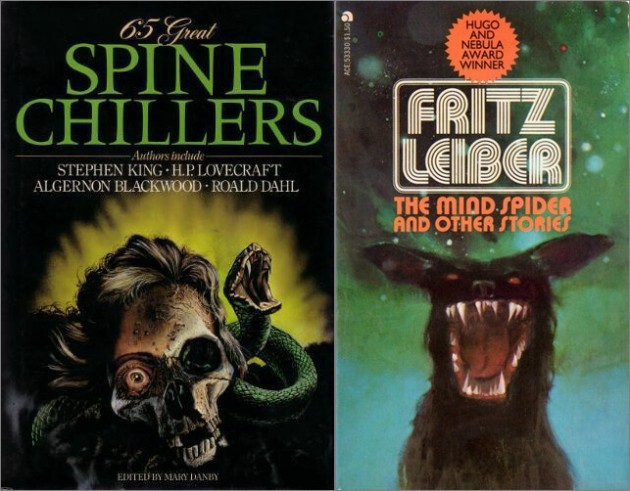There is a fifth dimension beyond that which is known to man. It is a dimension as vast as space and as timeless as infinity. It is the middle ground between light and shadow, between science and superstition, and it lies between the pit of man’s fears and the summit of his knowledge. This is the dimension of imagination. It is an area which we call the Twilight Zone. —Rod Serling (1924-12-25/1975-06-28)

David H. Keller (1880-12-23/1966-07-13)
“The Thing in the Cellar” (Weird Tales, March 1932)
Ever since little Tommy was a baby, he’d reacted strangely to the kitchen of the house his parents had moved into, which was connected to an unusually large cellar, separated by an unusually massive door. Now a boy of six about to go to school, his parents have had enough of his strange and unmanly ways and consult a doctor for advice on what to do about it. Since the boy’s fears are irrational, the doctor decides, his parents should make him confront them so that he can learn that there’s nothing to be afraid of.
This story, though short, is a little long and labored in getting to the point we’re all expecting, but it is a more effective psychological horror story than anything else, as it touches on the horrible things parents and society can do to children… for their own good, of course.[1]
Fritz Leiber (1910-12-24/1992-09-05)
“The Oldest Soldier” (F&SF, May 1960)
Fred’s a liberal who used to be a pacifist but, being a liberal and thus able to see both sides of every issue, he’s become interested in military affairs. He’s become a regular at a liquor store bar where he’s tolerated as the token civilian and has become friends with Max who tells taller tales than even the rest of the ex-soldier regulars—claiming to have been in Napoleonic wars and even Martian ones. But when he and Fred both become aware of a large black shape with glowing red eyes spying on them, they find themselves in a night of terror and Fred develops a new perception of reality in a couple of ways.
While not an award winner and not usually on lists of great stories, so far as I know, this is one of my favorites. Whether Leiber is letting creative whimsy show through when talking about the “screwballistics” of the bar folk, or making the store in Chicago seem vividly real with talk of plate glass windows and Fred’s attempts to rationalize the glowing eyes as reflected tail lights or cigarette butts blown by the wind, or describing the mindless actions Fred takes to control his fear as he tries to wait out an only vaguely understood disaster, all of it works. The narrative which moves deftly from present to past and back more than once also keeps the story taut and moving while allowing room to create depth. The protagonist’s issues with war and peace, bravery and fear, and his night of crisis is compelling of itself even if it weren’t a powerful horror story at the same time.
[1] And I can’t help but think of “I Don’t Wanna Go Down to the Basement” by the Ramones.

I read a lot of Lieber when I was a young man, but lately I’ve had trouble with how rough and unfinished much/all of his work seems to be. I think I read somewhere that his MO was to send in first-drafts of his work and let the editors clean it up. If that’s the case, it really shows.
I think what really put me off was The Wanderer, which is such an incredible hodgepodge.
LikeLike
You’re not alone in that, at least generally. I hear quite a few negative comments about Leiber which I generally don’t see, so I think it’s just one of those ‘strokes for folks’ things. I mean, he’s written an awful novel (The Silver Eggheads) and a sub-par novel (A Spectre Is Haunting Texas) and I’ll grant that I thought The Wanderer was only okay (one of the longest books up to its time and a sort of prototypical disaster novel that’s become much more common), and not every one of his collections is solid gold, but they all have at least some gold, most are great, and I generally like the rest of his novels. (I haven’t read the Tarzan tie but I think I’ve read everything else.)
Anyway, he’s got something to him I really like and don’t see it as so flawed but I’ve even heard people call him wetbrained from his alcohol issues while I read something like Our Lady of Darkness and think anyone who could write that has all his faculties intact. (I think there’s a stronger case to be made for someone like Laumer or Heinlein having a ‘before’ and ‘after’ from health issues.) But I understand that others, including you, see him differently.
LikeLike
Pingback: Birthday Reviews: Complete Linked Index to Authors and Stories | Featured Futures